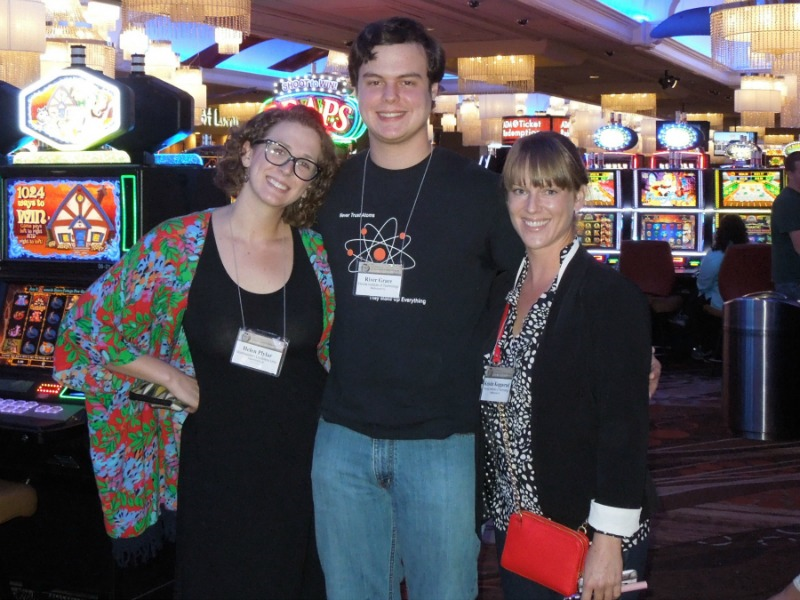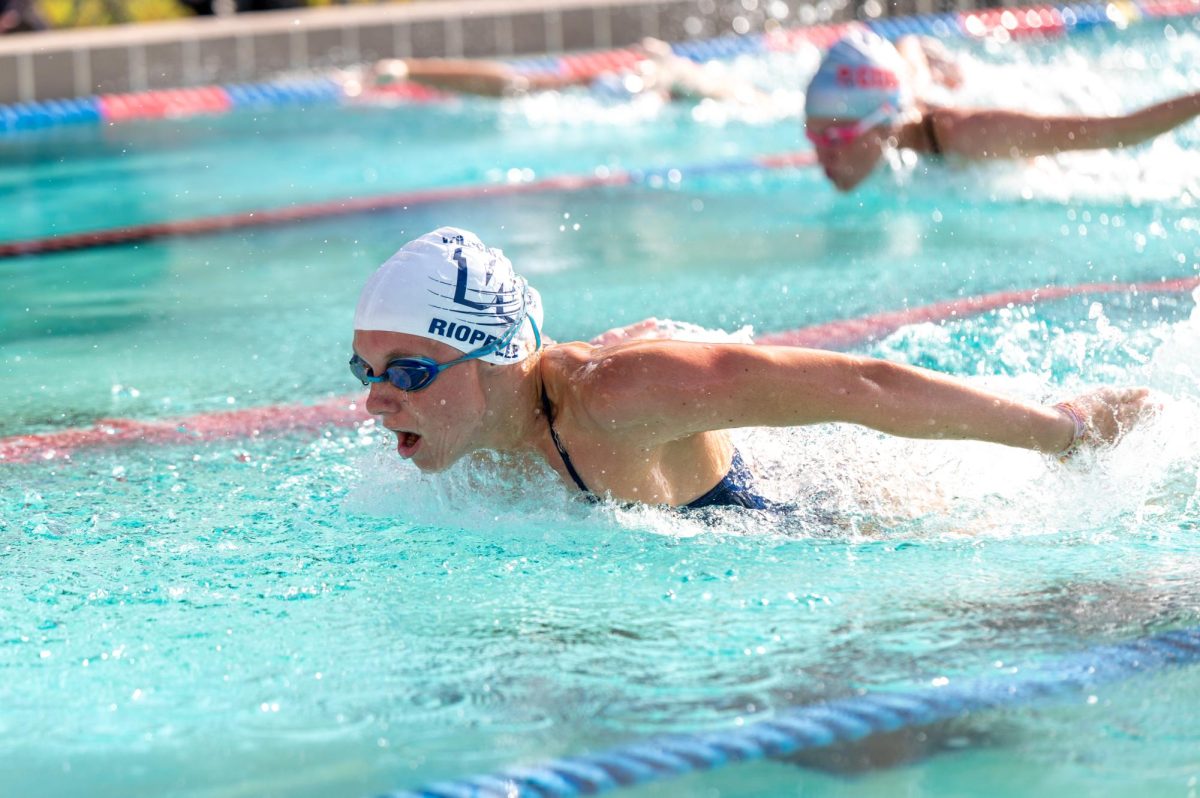Snake study puts junior in national spotlight
To take a break from the conference, River Grace spends time with FIT graduate students Helen Plylar and Kristin Kopperud.
December 1, 2015
When junior River Grace picked up a six-inch snake in the third grade, he never would of thought that a reptile would lead him to present at a national conference to professional scientists. This summer, he presented at his first professional scientific presentation in Nevada, the Joint Meeting of Ichthyologists and Herpetologists, who study fish and reptiles. His research on the Brahminy Blind Snake, a six-inch variety that looks like a worm and lives underground, received more questions from the audience than any of the other presenters in his half-day session.
“I found one of the snakes in the third grade in my yard and was intrigued by it, but never really thought much about it until recently,” Grace said. “At the beginning of last year, I found more in my yard, and that sparked my curiosity again and I wanted to find out more about this snake.”
Through his research, information on the human brain could be gained. In his experiment, Grace analyzed the cellular architecture of the Brahminy Blind Snake’s nervous system and physiologically response to light.
“This species has one of the simplest brains scientists know of currently, and by studying it the very basics of the human or any vertebrate animal’s brain can be learned and the most fundamental components of the brain can be figured out,” Grace said. “This snake is super invasive, and since they could be doing serious damage to the very basics of ecosystems, trying to understand how they view their world is very important.”
In addition to this achievement, Grace also had an abstract selected for presentation at the upcoming annual meeting of the Society for Integrative and Comparative Biology, January in Portland, Ore.
“At the conference, I’ll be presenting my research to the professional scientists and other students there,” Grace said. “I’m really excited for it. I enjoy questions, and the critique from the professionals’ perspective given at the conference in Nevada helped me improve my project and ways of researching and thinking. Since it was my own research, no one had heard about it before which made it interesting to inform them. I was able to present my research to a bunch of scientists, and they really appreciated it.”
Science research and biology teacher Mary Anderson has advised River through his five years of science research.
“River is an amazing student,” Anderson said. “He always goes the extra step, especially in research and always does the extra work that it takes, whether it’s working on weekends or nights or holidays, he’s always in the lab at FIT.”
Anderson has tried to book Grace for speaking in the past, and is hopeful for the conference in Portland.
“The conference is a great opportunity for him because any chance to publicly speak not only enhances your knowledge on the topic, it makes your a better speaker.”
By Rachel Montgomery




















































